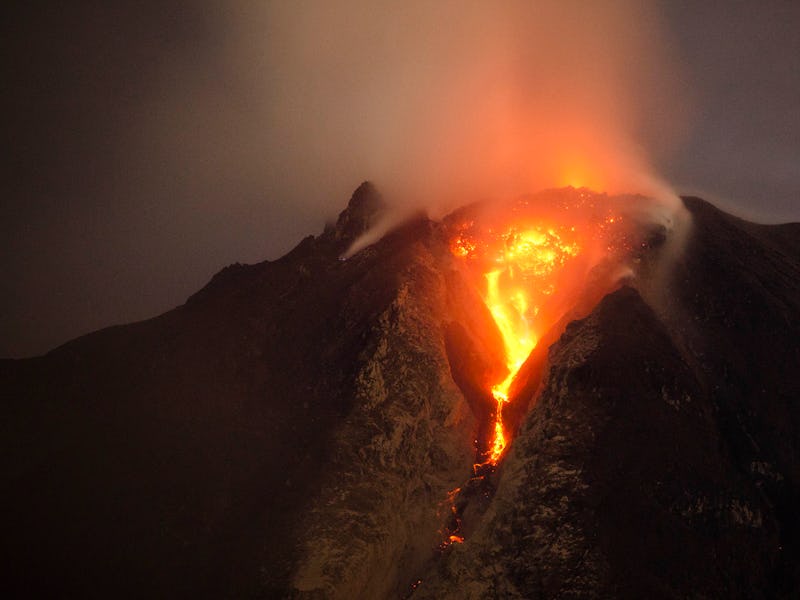What Causes a "Sleeping" Volcano like Mount Agung to "Wake Up" Again?
It's never safe to say a volcano will never erupt again.

Indonesia’s Mount Agung has started spewing magma miles high above the island of Bali for the first time in more than 50 years. But in volcano-speak, a half century is no time at all. A volcano could be considered active even if it hasn’t seen any activity in the last 10,000 years, and so could still potentially erupt, volcano researchers say.
But the definition of a “dormant” volcano isn’t entirely agreed upon among scientists. It’s why the eruption of Washington’s Mount St. Helens in 1980, more than a 100 years after it last erupted, came as such a surprise. There’s no actual scientific way to tell whether a volcano is ever going to erupt in the future.
Mount St. Helens emits a plume of steam and ash October 1, 2004.
“Even volcanologists don’t agree on the exact definitions,” an article from Earth Magazine says. “There is almost always potential for a currently inactive volcano to begin erupting again.”
The last time that Mount Agung erupted was in 1963, when an estimated 1,900 people died. The eruption lasted 20 days and was followed with a flow of lava that, due to rain, spread wide and destroyed surrounding villages. To prevent such destruction, authorities on the island of Bali have evacuated tens of thousands over the past few months, closed airports to prevent tourists from visiting the popular vacation spot, and warned residents to stay almost five miles away from the mountain.
But scientists didn’t have the information to expect that the volcano could “wake up” when they first detected tremors back in September. One of the ways that scientists will determine if volcanoes are active or “sleeping” is the estimated frequency of their eruptions, but Mount Agung hadn’t shown any activity for at least 120 years before 1963.
These varying lifespans mean scientists are unable to definitely say when a volcano will erupt next, and why a “sleeping” volcano could always wake up. Scientists have warned against classifying a volcano as “extinct” or “dead” because of this, and theorize that it could just be going through an especially long “cycle of eruption and dormancy,” the American Geophysical Union says.